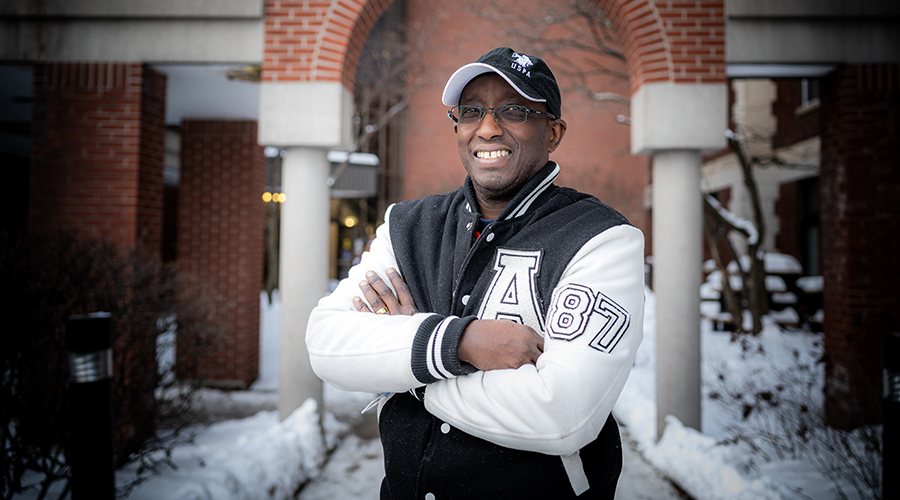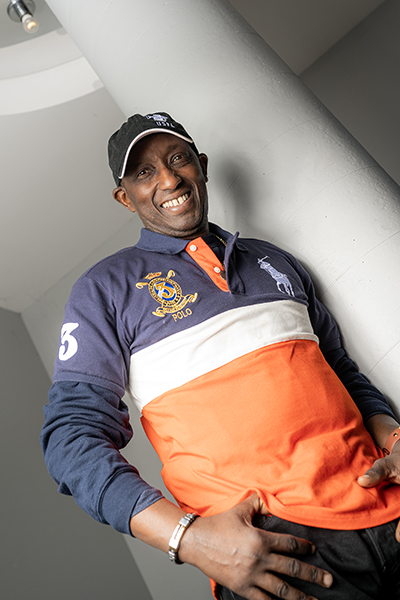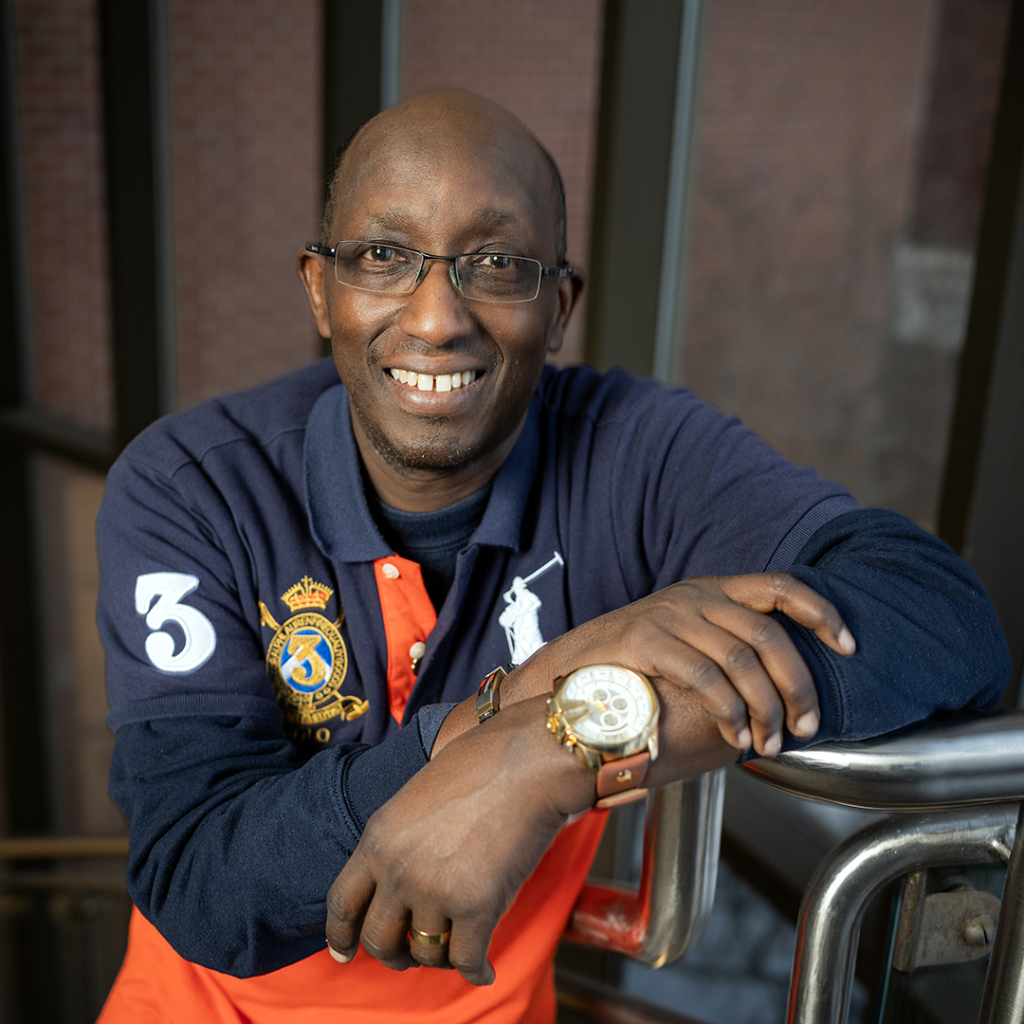A CANCER JOURNEY
Years after losing his dad to cancer, Robert Nsengiyumva faces his own diagnosis

Published: February 2024
When Robert Nsengiyumva was 24, he lost his dad to liver cancer. It was a devastating time for this young man and his family. Little did he know, 25 years later, he’d face a cancer diagnosis himself — stage IV stomach cancer.
After his dad died, Robert assumed the role of father figure to his four younger siblings — two sisters and two brothers. While his mother worked to help support the family, he also stepped forward to help provide care and financial support for his family.
In the years that followed, cancer was no stranger to Robert’s family — several other members also faced a cancer diagnosis. Then in 2021, he received his own devastating diagnosis after experiencing weight loss and abdominal pain, along with nausea and vomiting. “I was 53. I was an active person, and so it was a very difficult time for me,” explains Robert.
Coming to terms with the news was also difficult for those closest to him, like his wife and circle of friends. “I will not lie; it was a like a bomb dropped — it was that shocking. When I decided to tell a few friends what was going on, they didn’t believe me at first. They thought it was a joke — then they realized it was true,” explains Robert.
Understanding a stomach cancer diagnosis
Stomach cancer — also known as gastric cancer — is a growth of cells that starts in the stomach. While it often starts in the lining, it can start in anywhere in the stomach. Thankfully, occurrences have been declining, but it is still one of the most common cancers worldwide.

According to the Canadian Cancer Society, most stomach cancers are found when the disease is advanced and remission is less likely. When it spreads past the stomach wall or into other parts of the body, it’s harder to cure.
In Canada, the five-year survival rate for stomach cancer is 29%.
Due to the stage of Robert’s cancer, treatment began right away. His medical team at The Ottawa Hospital included, Dr. Dominick Bossé, medical oncologist, and Dr. Carolyn Nessim, surgical oncologist, who were ready with a plan. The first course of action was four chemotherapy treatments. These started on October 18, 2021, and the last treatment was at the end of November. Next up would be surgery.
By early January 2022, Robert underwent surgery on his stomach, led by Dr. Nessim. “It was an isolating time. I had to live within four walls because of the pandemic. I had to be careful not to get COVID,” he says.
After a successful operation, Robert was given some time to recover before he resumed chemo treatments. By the end of April, his treatments were done and deemed a success.
“The first round of chemotherapy treatment was very difficult; I suffered a lot, but the final four were much easier. After my treatments were done, I started to improve and feel better,” explains Robert.
Here to say thank you
By July 2022, Robert returned to work part-time. “Then by August, I was back on the job as a Building System Technician in the Public Service, full time. That’s something I never thought would happen when I first received my diagnosis,” says Robert.
“I wanted to support those who faced cancer like me, and so becoming a donor to The Ottawa Hospital was an easy choice.”
— Robert Nsengiyumva
Today, he shows no signs of recurrence, and Robert is making the most of every day.

He’s also deeply grateful for the team of medical experts that were ready to care for him when he needed them most. In fact, he’s always wanted to give back in some way. “I wanted to support those who faced cancer like me, and so becoming a donor to The Ottawa Hospital was an easy choice ,” says Robert.
It’s a monthly donation that allows him to say thank on a regular basis to those who helped give him more time. “This is my way to thank everyone who cared for me. The staff, including the doctors and nurses at The Ottawa Hospital Cancer Centre, who treated me during my illness. I don’t know how to thank them enough, so I decided to send my donation every month, and it feels good.”
The Ottawa Hospital is a leading academic health, research, and learning hospital proudly affiliated with the University of Ottawa.




